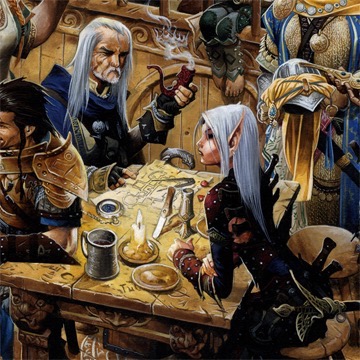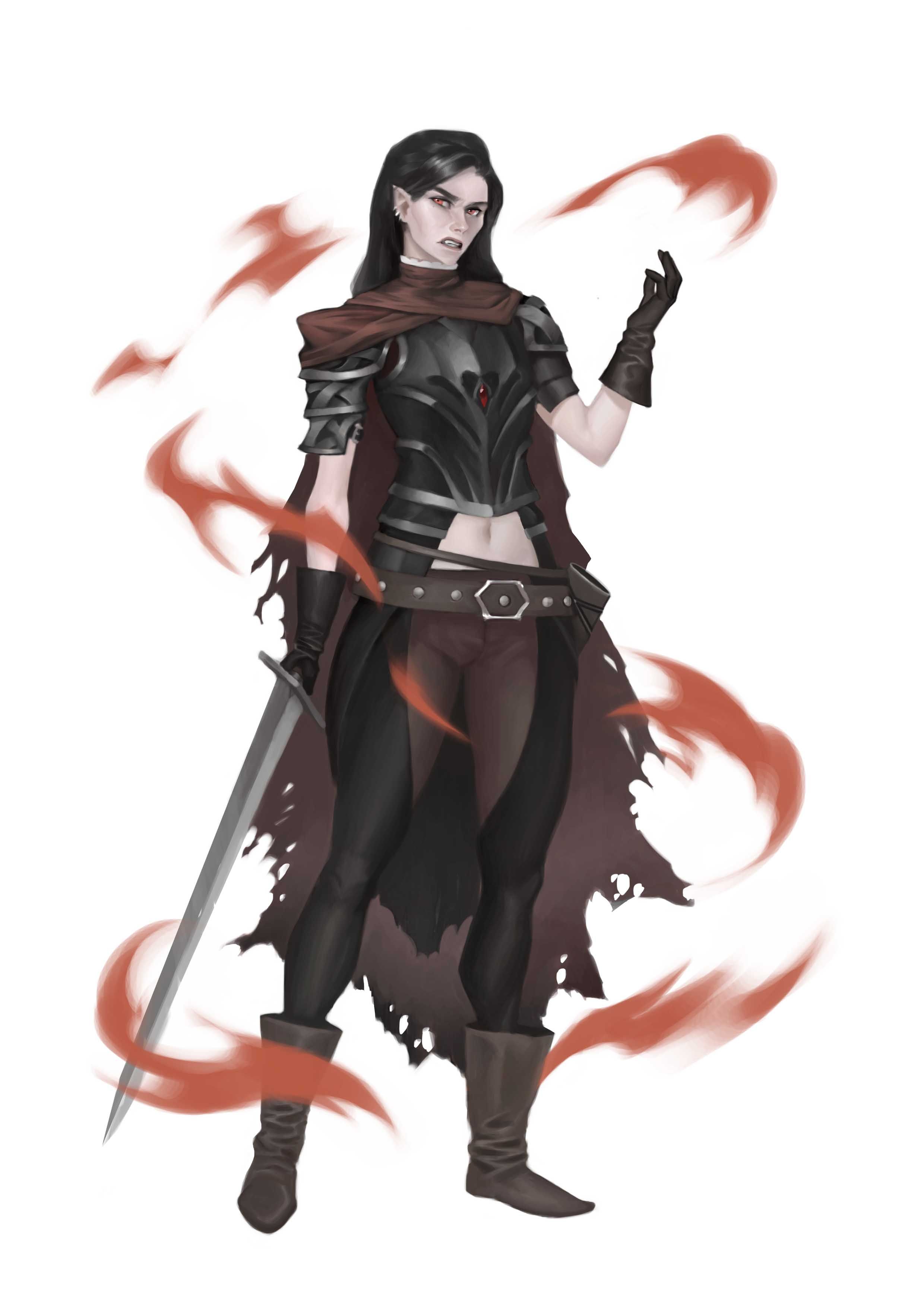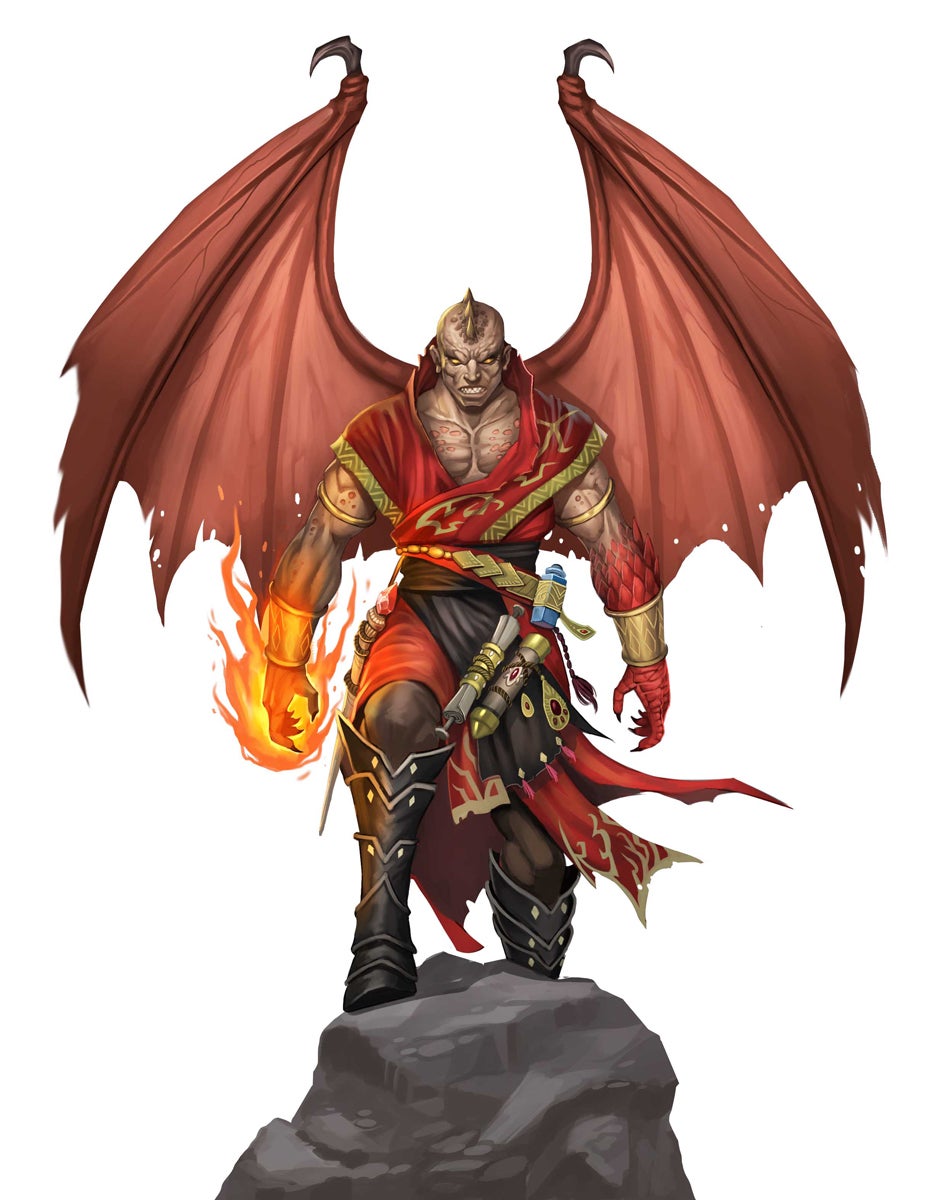A dhampir human who wields sword and flame. A leshy vigilante who patrols the streets in a bright mask. A hobgoblin champion who looks positively dashing in his Golden Legion epaulets. Today, let’s take a bit of a look into how rarity and access combine to show what options are legal for use in Organized Play (and how you can play that dhampir leshy vigilante dragon disciple, if that’s what you want!).
What is Rarity?
Rarity is built into the ground level of Pathfinder Second Edition, which makes it very easy to use in the Pathfinder Society campaign. The Core Rulebook describes rarity:
"If no rarity appears in the traits of an item, spell, or other game element, it is of common rarity. Uncommon items are available only to those who have special training, grew up in a certain culture, or come from a particular part of the world. Rare items are almost impossible to find and are usually given out only by the GM, while unique ones are literally one-of-a-kind in the game. The GM might alter the way rarity works or change the rarity of individual items to suit the story they want to tell.
It’s important to note that uncommon or rare options are not inherently stronger than common ones—talking corpse is no more powerful than other level 4 divination spells—just that they might not mesh well with certain story concepts or they might require a certain level of GM buy-in. After all, a murder mystery wouldn’t really make sense if anyone in the world knew how to cast talking corpse on the victim to ask who the culprit was.
What is Availability?
You might notice that the Core Rulebook references the GM in several places. Since Pathfinder Society doesn’t have just one GM, the organized play team acts as campaign GM, using a system of availability to show what options are legal for play. There are three kinds of availability for Pathfinder Society:
Standard: Standard availability just means that the option’s rarity for Organized Play is unchanged from the rarity printed in its sourcebook. If the option is common in the sourcebook, that means it’s common for Pathfinder Society, so you can take it as-is (assuming you meet all the usual prerequisites). If the option is uncommon in the sourcebook, that means it’s uncommon for Pathfinder Society, so you need to gain access to it somehow (see below for more on that!). Almost all options are standard availability unless otherwise stated.
Limited: Limited availability means that the option won’t be seen as often in Society play. If an option is limited, it means that you can’t select it unless you have a boon that specifically allows it—even if the option is common or if you have access to it. Options are limited if we want to save them for special rewards (usually for scenarios with heavy ties to certain regions or factions), or if we’re not allowing them in the campaign at this time.
Restricted: A restricted option functions exactly like a limited option—you can’t select it unless you have a boon that specifically allows it. The main difference, though, is to signal that these options shouldn’t be expected to enter Society play anytime soon, either because they don’t make sense for large numbers of players to be running around with (such as unique weapons), require above-average amounts of GM adjudication (such as the Plot the Future feat, which requires the GM to give advice to the player about future actions within the next week), or are outside the tone of the shared campaign setting (such as certain evil deities or spells). Restricted options usually enter the campaign in small numbers, such as via charity boons, if at all.
Rather than saying options are allowed or banned, as was the case in Pathfinder First Edition, we designate them as standard or limited/restricted instead. This helps to keep everything working within the same rarity system as used in all other Pathfinder products, and it also makes it easier for us to allow options later down the line if things change.
Art by Kiki Moch Rizky
Gaining Access to Uncommon Options
So, what should I do if I want to use an uncommon option for my Pathfinder Society character? There are five main ways to gain access:
- Automatic Access: Pathfinder Society players gain automatic access to a variety of options—such as the kobold ancestry, the vigilante archetype, or Pathfinder-specific equipment like the wayfinder—just by being part of the Pathfinder Society! Check the Character Options Blog to see if you already have access to the option you want to take.
- Character Origin: Just like in non-Society play, your character’s backstory—such as their ethnicity, region of origin, or any groups they belong to—might give them access to certain options.
- Player Options: Some common feats, ancestries, classes, or the like can grant you access to uncommon options further down the line. For instance, the dragon disciple archetype is uncommon, but if you’re a dragon instinct barbarian or a draconic bloodline sorcerer, you gain access. Similarly, many uncommon ancestral weapons, such as gnome flickmaces or elven curve blades, can be accessed with common ancestry feats.
- Achievement Points (AcP) Purchase: Achievement Points earned by playing and GMing games can be used to purchase access to uncommon or rare options. You can check the total AcP you’ve unlocked for Pathfinder Society (2e) and the boons available to purchase by signing in to your My Organized Play account and going to the “Boons” tab. This is also the main way to select an uncommon ancestry or heritage.
- Adventure Unlocks: Lastly, boon unlocks from completing certain adventures or achieving Faction goals grant access to thematically related uncommon or rare options. In Year 1, these boons were located on the Chronicle Sheet of each adventure, but moving forward into the future, you’ll now find these boons in the same place as those purchasable with AcP on the “Boons” tab of your My Organized Play page.
It’s important to note that, while you can use these methods to gain access to many uncommon options, not all options yet have a way to gain access to them. Many of these are things we’re waiting for the right adventure to give out as a reward; for instance, it seems underwhelming to grant access to a Baba Yaga feat or a Jatembe spell without interacting with Irrisen or the Magaambya in some way to learn these legendary techniques.
As the campaign’s ongoing storyline progresses and evolves, the actions of you, the players, will also influence what is made available in the Pathfinder Society campaign. Be sure to report your scenarios and check any boxes—after all, your successes and choices can shape the world of Golarion, and with it, the options your characters can find within it!
James Case
Organized Play Developer
Rarity and Availability in Organized Play
Thursday, August 27, 2020


